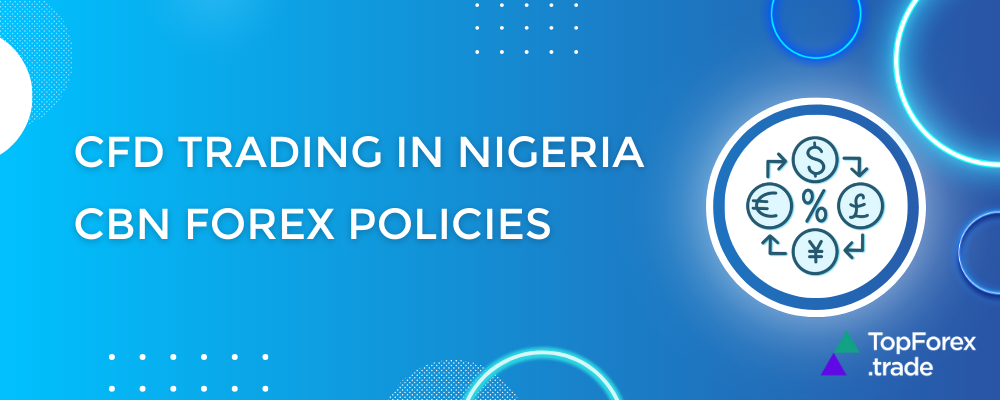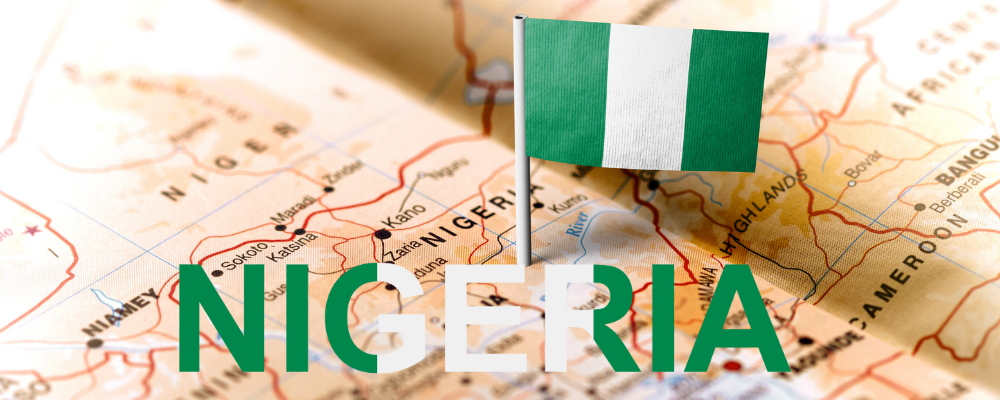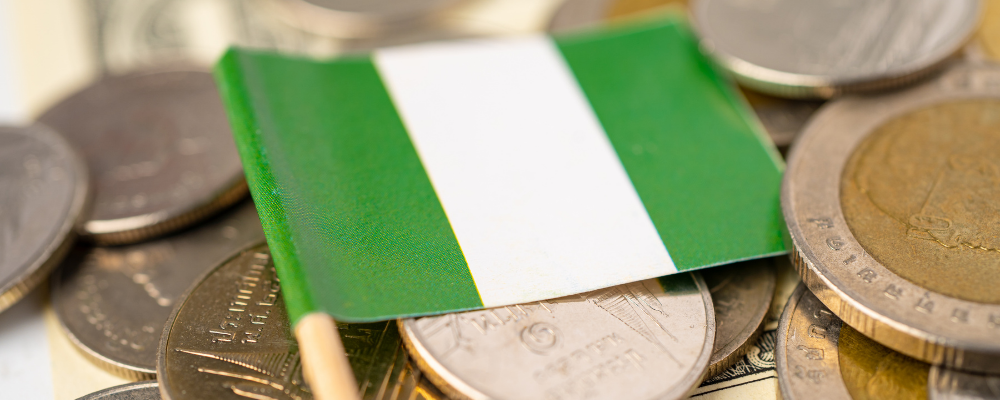A guide to trading CFDs in Nigeria: adapting to CBN Forex controls

CFD trading is gaining traction in Nigeria, but the Central Bank’s forex policies continue to play a major role in shaping how – and where – traders operate. From currency restrictions to broker regulations, local traders have had to adapt quickly to policy shifts. In this article, we’ll explore how these changes influence trading strategies and what Nigerian traders can do to stay ahead.
Popular CFD trading instruments in Nigeria and how to trade them
CFD trading lets you bet on price changes of different financial assets without actually owning them. When you trade CFDs, you make an agreement with a broker to exchange the difference in the price of an asset between when you open and close the contract. Here are the main benefits of CFD trading:
✅ Trade on margin: You only need to deposit a small part of the total value of the position, which allows you to trade larger amounts than you would with your own funds.
✅ Profit in rising and falling markets: CFDs allow you to “buy” (go long) if you think the price will go up, or “sell” (go short) if you think the price will go down.
✅ Access to global markets: CFDs let you trade various types of assets, including stocks, forex, commodities, and even cryptocurrencies.
Popular CFDs for Nigerian traders include forex pairs (EUR/USD, GBP/USD), commodities like gold and oil, stock indices (US30, NASDAQ, S&P 500), U.S. tech and energy stocks, and cryptocurrencies such as Bitcoin, Ethereum, and Litecoin.
Many international brokers offer access to these instruments, but availability can vary based on regulatory and payment restrictions.
CFD trading regulations in Nigeria

The Nigerian Securities and Exchange Commission (SEC) does not currently have a dedicated framework for online CFD trading, meaning regulation is relatively loose at the local level. This leaves many Nigerian traders turning to international brokers regulated in jurisdictions like the UK, Cyprus, or Australia.
⬇ Scroll down to find the list of the best regulated FX and CFD brokers for safe trading ⬇
However, the lack of a local regulatory structure also means:
-
Limited protection for retail investors
-
Reliance on offshore brokers for platform access and customer support
-
Minimal local oversight, especially concerning fund security
CBN currency restrictions and Forex controls in Nigeria
The Central Bank of Nigeria (CBN) has imposed several forex controls aimed at stabilizing the naira and curbing capital outflow. These restrictions impact CFD traders in the following ways:
-
Limited access to foreign exchange: The CBN controls the amount of foreign currency available through official channels, restricting access to USD and other foreign currencies.
-
Inconsistent availability of USD: Traders face difficulty obtaining USD for international payments, including for funding trading accounts and withdrawing profits.
-
Blocked use of Naira cards: Many international trading platforms do not accept Naira debit/credit cards, preventing direct transactions for Nigerian traders.
-
Restricted access to international payment platforms: Due to forex regulations, Nigerian traders often cannot directly use platforms like PayPal or Skrill for deposits and withdrawals.
To navigate these restrictions, traders commonly resort to:
✅ Cryptocurrency transfers: Using digital currencies like Bitcoin or Ethereum for deposits and withdrawals.
✅ Domiciliary accounts: Opening foreign currency accounts in Nigerian banks to facilitate international transactions.
✅ Peer-to-peer (P2P) payment networks: Using local P2P platforms to buy foreign currencies for international payments.
→ Check out: Best Forex brokers for Crypto deposits and withdrawals
Although these methods help bypass forex controls, they come with additional risks, conversion fees, and regulatory uncertainty. However, Nigerian traders can still access international brokers who offer alternative payment solutions such as crypto-based deposits and flexible payment options within the CBN’s forex constraints. By choosing brokers that support these payment methods, traders can continue to trade CFDs on global markets while adhering to local forex rules.
Local strategies shaped by CBN Forex policies in Nigeria

Nigeria’s forex policies, driven by the Central Bank of Nigeria (CBN), have pushed local CFD traders to become more creative and agile. Faced with restrictions on currency access and the volatility of the naira, traders have developed innovative strategies to stay profitable.
1️⃣ Leveraging Cryptocurrency for transactions
Given the difficulty of accessing USD and the blocking of Naira cards for international payments, many Nigerian traders have turned to cryptocurrency as a solution. Cryptocurrencies, such as Bitcoin and Ethereum, are often used for depositing and withdrawing funds on international trading platforms.
➡ Example: A trader wants to fund their CFD trading account on a global platform. Since Naira cards are blocked, they convert Naira to Bitcoin via a local exchange or P2P network, deposit Bitcoin into their trading account, and use it to trade CFDs. This strategy avoids the challenges posed by currency restrictions and allows for quicker transactions.
2️⃣ Utilizing domiciliary accounts for funding
Domiciliary accounts, which are foreign currency accounts offered by Nigerian banks, provide an alternative way to fund trading accounts. Traders with these accounts can receive USD, EUR, or other currencies, which can then be used to deposit into international brokers.
➡ Example: A Nigerian trader opens a domiciliary account with a local bank to receive USD payments from their international clients or investments. The trader then transfers these funds into their trading account to engage in CFD trading, bypassing the need for direct access to USD via traditional forex channels.
3️⃣ P2P Payment networks for currency exchange
Peer-to-peer (P2P) networks are a popular method for Nigerian traders to access foreign currencies for trading. These platforms allow users to buy USD, Bitcoin, and other currencies directly from other individuals, often at a more favorable exchange rate than what is available through official channels.
➡ Example: A trader needs to purchase USD to trade CFDs on an international broker’s platform. Using a P2P exchange, they find a seller offering USD in exchange for Naira, which they use to fund their trading account. This method sidesteps restrictions on traditional forex exchange channels and facilitates smoother trading operations.
4️⃣ Choosing Brokers with Flexible Payment Methods
Many Nigerian traders prefer brokers that offer flexible payment options, such as crypto deposits or alternative payment systems that align with the CBN’s forex policies. These brokers often allow for easier deposits and withdrawals, overcoming the challenges of using conventional banking methods.
➡ Example: A trader looks for an international broker that accepts crypto-based deposits and withdrawals, allowing them to fund their account with Bitcoin or Ethereum. The flexibility of these brokers allows them to continue trading CFDs on global markets without being restricted by the CBN’s forex policies.
5️⃣ Trading with higher spreads and fees
Due to the increased costs of currency conversion, transaction delays, and restricted access to payment systems, many Nigerian traders accept higher spreads and fees. This strategy is a trade-off for continued access to global CFD markets despite the challenges posed by local forex controls.
➡ Example: A Nigerian trader is aware that using certain payment methods, such as crypto transfers, may result in higher spreads and transaction fees. However, they are willing to accept these costs in exchange for the ability to trade CFDs with international brokers. This strategy allows traders to remain active in the market while managing the added costs.
.
Best FX brokers for trading in Nigeria
Despite the challenges posed by CBN’s forex policies, Nigerian traders can still access international brokers that provide flexible payment options and a wide range of trading instruments. Here are some of the best FX brokers for Nigerian traders:
AvaTrade
AvaTrade is a well-regulated broker with a wide range of CFD instruments, including forex, commodities, stocks, and cryptocurrencies. Nigerian traders can fund their accounts through multiple channels, including Bitcoin and other cryptocurrencies, which allows them to work around local currency limitations.
BlackBull Markets
BlackBull Markets is known for its competitive spreads and a wide range of CFDs, including forex, indices, and commodities. With strong liquidity and excellent customer support, BlackBull provides Nigerian traders with access to international markets while supporting cryptocurrency and alternative payment methods to bypass local forex restrictions.
XTB
XTB is another top choice for Nigerian traders, offering a wide range of CFDs on forex, indices, stocks, and commodities. XTB’s platform is easy to navigate, and the broker offers both education and analysis tools to help traders succeed. Nigerian traders can fund their accounts using various methods, including cryptocurrencies, making it easier to bypass the CBN’s forex restrictions.
Exness
Exness is a well-regarded broker offering a vast array of trading instruments, including forex, stocks, and commodities. Exness stands out for its low minimum deposit requirements and a variety of payment options, including cryptocurrency deposits, which help Nigerian traders navigate local forex restrictions. Exness also provides 24/7 customer support and access to MetaTrader 4 and 5, making it an excellent choice for both beginners and experienced traders.
eToro
eToro is one of the most popular brokers for Nigerian traders due to its user-friendly platform and social trading features. It allows traders to copy successful traders’ strategies, making it ideal for beginners. eToro supports a variety of payment options, including cryptocurrency deposits, which helps traders bypass some of the CBN’s restrictions.
Risk disclaimer: eToro is a multi-asset platform which offers both investing in stocks and cryptoassets, as well as trading CFDs.
CFDs are complex instruments and come with a high risk of losing money rapidly due to leverage. 51% of retail investor accounts lose money when trading CFDs with this provider. You should consider whether you understand how CFDs work, and whether you can afford to take the high risk of losing your money.
This communication is intended for information and educational purposes only and should not be considered investment advice or investment recommendation. Past performance is not an indication of future results.
Copy Trading does not amount to investment advice. The value of your investments may go up or down. Your capital is at risk.
Don’t invest unless you’re prepared to lose all the money you invest. This is a high-risk investment and you should not expect to be protected if something goes wrong. Take 2 mins to learn more.
eToro USA LLC does not offer CFDs and makes no representation and assumes no liability as to the accuracy or completeness of the content of this publication, which has been prepared by our partner utilizing publicly available non-entity specific information about eToro.
Related articles:
CFD trading in Nigeria - FAQ